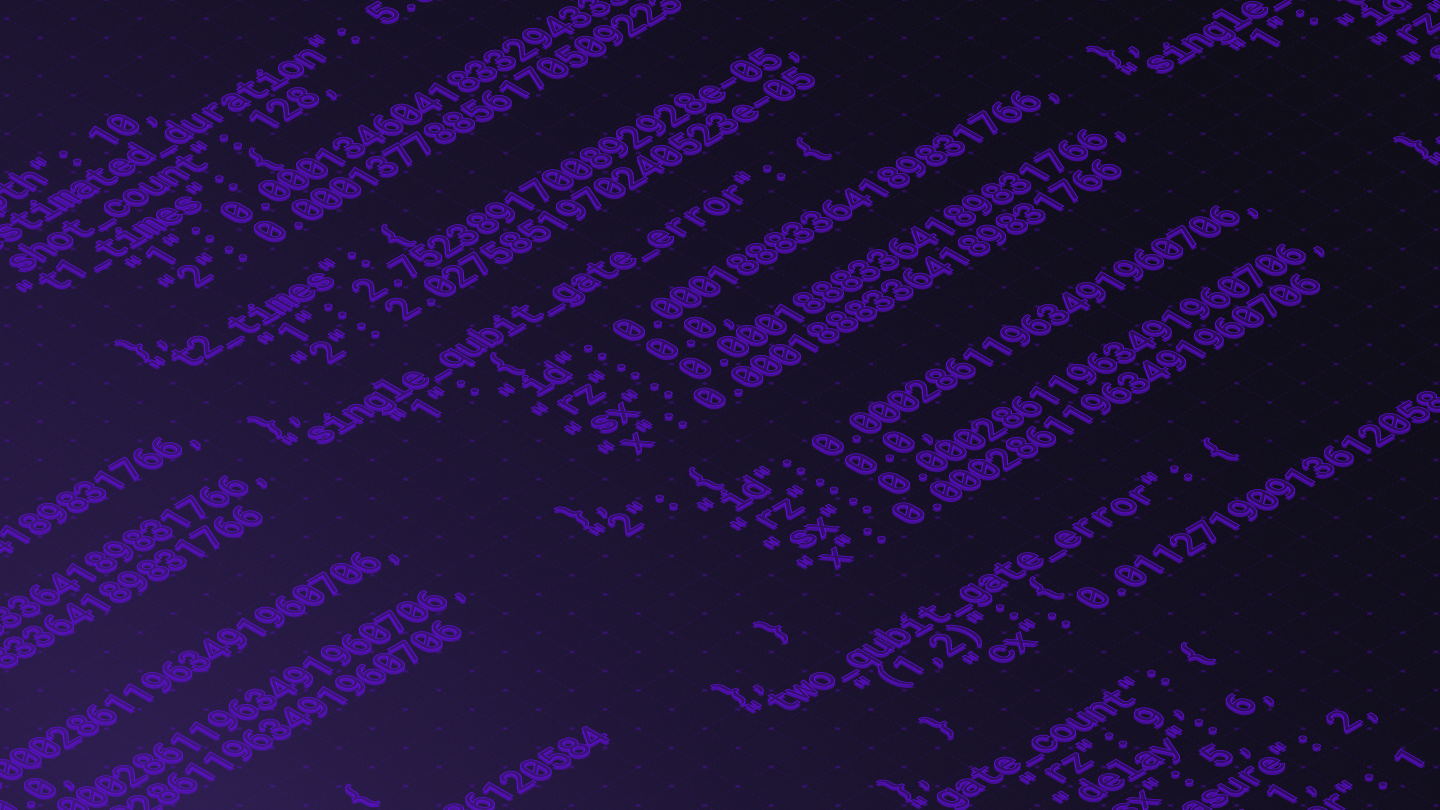Q-CTRL Integrates Fire Opal with Four Leading Quantum Computing Hardware Platforms to Deliver Unprecedented Capabilities to End Users

Q-CTRL expands native performance-management software integrations to accelerate quantum advantage with IBM Quantum, adding Rigetti, Oxford Quantum Circuits, and Diraq.
Quantum World Congress, Tysons, Virginia, September 10, 2024– Q-CTRL, the global leader in quantum infrastructure software, today announced that its performance-management software, Fire Opal, will be natively integrated into four of the world's most advanced quantum computing platforms — IBM Quantum services, Rigetti Quantum Cloud Services (QCS®), Oxford Quantum Circuits (OQC) Cloud QCaaS devices, and Diraq’s Silicon quantum processors.
These latest integrations demonstrate Q-CTRL's ubiquity and industry leadership, backed by an unrivaled validated track record of its technology across diverse types of quantum computers. Building on the company’s integration with IBM Quantum services in December 2023, Q-CTRL has become a key partner in the sector’s focus on delivering commercial value to end users.
Q-CTRL’s performance-management software, Fire Opal, improves the usability and capability of quantum computing by minimizing errors and abstracting the details of how to operate hardware for peak performance. Errors in quantum computers constitute the biggest bottleneck in the technology’s advancement today. Managing these errors consumes a significant amount of time for hardware vendors and end users seeking to achieve meaningful results on the path to quantum advantage.
Vendors natively integrating Q-CTRL's AI-driven software solutions stand out in a competitive market by delivering the best user experience and performance through a simple, fully automated solution. This enables quantum developers and algorithm researchers to dramatically increase the rate of innovation and demonstrate the value and utility of their latest advancements in quantum applications.

“Over the past decade the Diraq team has produced multiple world-first results in the development of Silicon quantum computers,” CEO and Founder Prof Andrew Dzurak said. “It’s only natural that we would be the first Silicon quantum computer manufacturer globally to partner with Q-CTRL to integrate their world-leading performance-management software into our systems. Partnering with the world’s leading quantum performance management software provider is firmly aligned with our strategic focus and technical development program. We’re looking forward to bringing this technology to market as we target transformational million-qubit machines over the coming years.”
Application-oriented benchmarking shows that Fire Opal delivers massive improvements across any algorithm, including challenging but essential modules such as the Quantum Fourier Transform, Grover’s Search, and the Quantum Approximate Optimization Algorithm.
Recently published results leveraging Q-CTRL’s performance-management integration with IBM quantum hardware show that end users are setting new world records in Quantum Machine Learning and Quantum Phase Estimation for quantum chemistry using Fire Opal.
"We achieved a significant leap forward in accurately calculating the physical properties of materials, demonstrating a five-fold increase in achievable circuit width over previous Quantum Phase Estimation studies,” said Shu Kanno, Scientist at Mitsubishi Chemical Corporation. “These results were enabled by Q-CTRL's performance management, which made it possible to run deeper and wider circuits on IBM Quantum systems.”
Given the modest scale of quantum computers today, Fire Opal enables efficient and hardware-agnostic error-suppression technology that reduces the likelihood that errors occur in quantum computer hardware and delivers real value to application developers. Q-CTRL’s latest innovations in efficient Quantum Error Correction position its technology to be a permanent part of the quantum stack as system sizes scale.
“At Q-CTRL we’ve had a single-minded focus on how infrastructure software can help deliver the best possible performance from quantum hardware,” said Q-CTRL CEO and Founder Michael J. Biercuk. “The first time we saw over a factor of a thousand improvement on a commercial quantum computer we knew this could change the direction of the industry. Now we’re thrilled that through new partnerships with some of the world’s leading quantum computing hardware vendors, we can seamlessly deliver real value to an increasing range of users. These partnerships have been built over the long-term through trusted relationships and real demonstrations of what’s possible, and they’re built to last.”
Rigetti
Q-CTRL is happy to announce that Fire Opal will soon be natively integrated with Rigetti’s 84-qubit AnkaaTM-2 quantum system through Rigetti Quantum Cloud Service (QCS®) by the end of the year.
Across application benchmarks in optimization and hardware-performance metrics such as Quantum Volume, Fire Opal has been validated to boost capability on Rigetti devices without user intervention. By reducing errors and increasing the device’s effectiveness, this integration enables users to execute more complex circuits, supporting potentially larger and more sophisticated applications.
Rigetti Ankaa-2 device users will be able to achieve improved performance on Rigetti’s largest hardware model to power the quantum algorithm research critical to domains such as optimization, quantum chemistry, quantum simulation, and quantum machine learning.
This integration is built on nearly five years of collaboration and commercial partnership. In April Q-CTRL became a founding member of Rigetti’s Novera QPU Partner Program, bringing automation technology for research teams to Rigetti’s locally deployed QPU offerings.
“As we continue to scale the size of quantum processors along with qubit performance, the combination of Rigetti hardware plus Q-CTRL performance management software can help bring us all one step closer to practical quantum advantage,” said David Rivas, Chief Technology Officer at Rigetti. “This successful integration demonstrates the value of collaboration across the quantum ecosystem and is an exciting outcome of our longtime partnership with Q-CTRL.”
Oxford Quantum Circuits (OQC)
Q-CTRL is bringing its Fire Opal performance management technology to OQC’s latest Toshiko devices, with technical benchmarks to be showcased later in the year. Building on last year’s results demonstrating >100X performance enhancement on small-scale Lucy devices, this native integration will give users access to best-in-class performance management software combined with OQC’s novel Coaxmon architecture.
This partnership will bring Fire Opal directly to the data center, building on OQC’s Cloud data center colocation model with Equinix. This world-first model innovation enables real-world applications to be accessed with ultra-low latency and maximum security. All future deployments of OQC hardware can integrate Fire Opal by default to deliver greater performance and simplicity to enterprise customers.
“Q-CTRL performance management will enable algorithms valuable to enterprise to run on our latest devices with peak performance,” said Simon Phillips, Chief Technology Officer at Oxford Quantum Circuits. “We are very excited to work with Q-CTRL to demonstrate the need for different teams and specialties to come together to democratise quantum computing and enable previously out-of-reach outcomes.”
Diraq
Q-CTRL and Diraq, global pioneer in silicon quantum computing technology, are excited to announce a planned integration of Fire Opal with Diraq’s Silicon-spin-qubit quantum processors as they are delivered for both cloud and on-premises access. This builds on last year’s announcement of multiple R&D engagements as both companies focus on delivering mature commercial offerings to further optimize the strategic development of silicon quantum processors.
Diraq’s approach to building quantum processors is unique and rigorous in addressing some of the same challenges of noise and errors endemic to all quantum computers. Q-CTRL’s error-suppressing technology is validated to work across all different qubit technologies, including through multiple research demonstrations in silicon qubits.
Earlier this year the Diraq team unveiled its partnerships with Global Foundries and IMEC – world leaders in large-scale semiconductor design and manufacturing – as it seeks to bring million-qubit devices to market, leveraging the unique advantages of its silicon platform. This integration represents a major step towards accelerating value delivery from the most advanced silicon quantum processors.
To learn more about these integrations, meet the Q-CTRL team at Quantum World Congress in Tysons, Virginia from September 9-11, 2024. Attendees will have the opportunity to engage with Q-CTRL experts and explore how the company’s software is powering the future of quantum computing. IBM Pay-as-you-go plan users can access Q-CTRL’s performance management on the IBM Quantum Cloud today.
About Q-CTRL
Q-CTRL’s quantum control infrastructure software for R&D professionals and quantum computing end users delivers the highest performance error-correcting and suppressing techniques globally and provides a unique capability accelerating the pathway to the first useful quantum computers and quantum sensors. Q-CTRL operates a globally leading quantum sensing division focused on software-level innovation for strategic capability. Q-CTRL also has developed Black Opal, an edtech platform that enables users to quickly learn quantum computing.
Founded by Michael J. Biercuk in 2017, Q-CTRL has pioneered the quantum infrastructure software segment and has become the leading product-focused software company in the broader quantum sector. Q-CTRL has been an inaugural member of the IBM Quantum Network startup program since 2018, and its performance management software now runs natively on IBM quantum computers. The company has international headquarters in Sydney, Los Angeles, Berlin, and Oxford.



